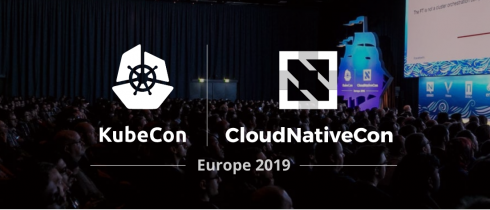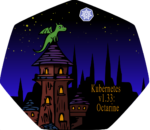
KubeCon EU is happening this week in Barcelona, and many companies are using the event as an opportunity to release new enhancements to their products. Here are a few of the highlights:
CircleCI announces new partnerships
CircleCI has announced new partner integrations that will enable users to better manage applications in Kubernetes environments. New partnerships include Azure, VMware, Red Hat OpenShift, Kublr, and Helm.
According to the company, these new integrations are an extension of the company’s Technology Partner Program, which launched in November of last year to enable partners to build orbs. Orbs are packages that turn commands, executors, and jobs into reusable lines of code in order to achieve greater efficiencies.
DigitalOcean Kubernetes now available
DigitalOcean has announced the general release of its managed Kubernetes service. The solution was first introduced last year.
DigitalOcean Kubernetes offers free monitoring and insights into clusters. The solution also supports Kubernetes 1.14, which is the latest release of Kubernetes.
Gravity 6.0 is now available
Gravitational has announced the release of Gravity 6.0. According to the company, this release will provide customers with more insight into the performance of Kubernetes applications.
New features include a multi-cloud control plane, application catalogue for publishing cluster images, a new audit log UI, and a new monitoring dashboard.
StorageOS and Rancher announce partnership
StorageOS has announced a new integration with Rancher Labs. StorageOS will now be available in the Rancher catalog. Now, users will be able to run stateful applications using Kubernetes without losing application data, StorageOS explained.
“The combination of Rancher and StorageOS gives Kubernetes users a powerful cloud native platform with the management layer and persistent storage needed to maximize their investment in containers, improve production deployment and decrease infrastructure costs,” said Shannon Williams, co-founder of Rancher Labs.
CNCF grows to more than 400 members
The Cloud Native Computing Foundation (CNCF) has officially surpassed 400 members. Every major public cloud provider is now a member, and membership increase 130 percent in 2018.
“We remain amazed at the growth of the CNCF community and the level of commitment and collaboration between members, end-users and developers alike,” said Dan Kohn, executive director of the Cloud Native Computing Foundation. “Support from our members is what allows CNCF to provide a home for many of the most promising open source, cloud native technologies to improve and grow.
OpenTracing and OpenCensus merge to form OpenTelemetry
OpenTracing and OpenCensus are both merging to form a new project called OpenTelemetry. OpenTelemetry will make telemetry a built-in feature in services.
Separately, OpenTracing and OpenCensus’ biggest problem was that they were two separate projects that weren’t working together well, explained Ben Sigelman, co-creator of OpenTracing and member of the OpenTelemetry governing committee.
“In many ways, it’s most accurate to think of OpenTelemetry as the next major version of both OpenTracing and OpenCensus,” said Sigelman. “Like any version upgrade, we will try to make it easy for both new and existing end-users, but we recognize that the main benefit to the ecosystem is the consolidation itself – not some specific and shiny new feature – and we are prioritizing our own efforts accordingly.”
Microsoft’s Virtual Kubelet 1.0 is released
In 2017, Microsoft announced Virtual Kubelet, extending the Kubernetes API to non-traditional computing environments, such as edge and serverless. It was accepted into the CNCF in December 2018, and now the company is announcing the release of Virtual Kubelet 1.0. According to Microsoft, this release will offer performance improvements that prove its readiness for production workloads.
Google Cloud announces enhancements to Google Kubernetes Engine
Google Cloud has announced a number of new enhancements to its Google Kubernetes Engine (GKE). It is adding GKE release channels, where customers will be able to choose from three release channels, depending on their needs. The three release channels are Rapid, Regular, and Stable, and each offers different version maturity.
The Rapid channel will enable users to start experimenting with Windows Containers from GKE 1.14.
Stackdriver Monitoring for Kubernetes is now also generally available and comes pre-integrated with GKE.
Atlassian Kubernetes software goes open-source
Atlassian Software in Kubernetes (ASK) is now open-source. ASK is a solution for running Atlassian installations in Kubernetes.
The solution was initially developed by Praqma, which is continuous delivery and DevOps consulting firm. Praqma hopes that with the solution becoming open-source, they will be able to learn from the community of users and continue improving the solution.
“Atlassian Software in Kubernetes is a powerful and valuable solution, and we are delighted to share it with the community. We strongly believe in open source, and look forward to collaborating with end users to deliver a great Atlassian experience“, says Mike Long CTO of Praqma.








